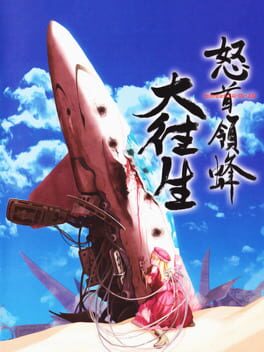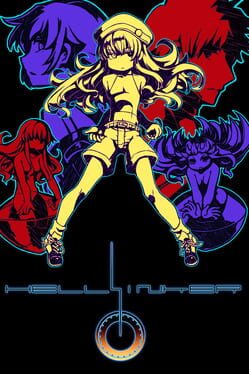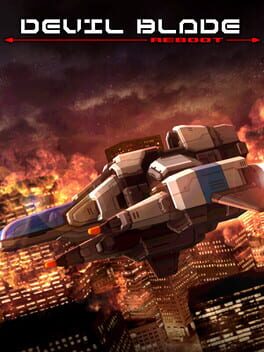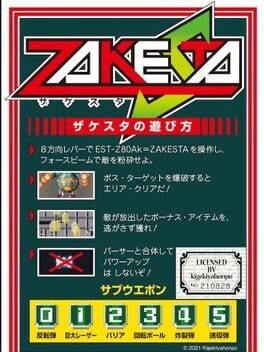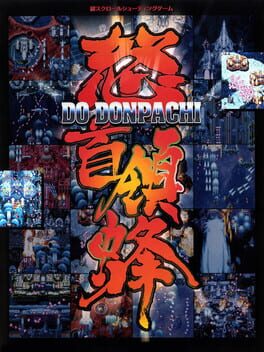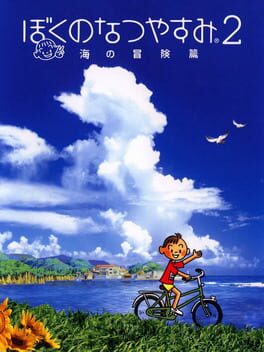rubenmg
1-2 stars: don't like
3-5 stars: like
Anything with 5 stars could be on Favorites.
Badges

Treasured
Gained 750+ total review likes

GOTY '23
Participated in the 2023 Game of the Year Event

Gamer
Played 250+ games

Pinged
Mentioned by another user

Famous
Gained 100+ followers

Gone Gold
Received 5+ likes on a review while featured on the front page

On Schedule
Journaled games once a day for a week straight

GOTY '22
Participated in the 2022 Game of the Year Event

Listed
Created 10+ public lists

Shreked
Found the secret ogre page

Roadtrip
Voted for at least 3 features on the roadmap

Organized
Created a list folder with 5+ lists

Best Friends
Become mutual friends with at least 3 others

Donor
Liked 50+ reviews / lists

Adored
Gained 300+ total review likes

Busy Day
Journaled 5+ games in a single day

3 Years of Service
Being part of the Backloggd community for 3 years

Trend Setter
Gained 50+ followers

GOTY '21
Participated in the 2021 Game of the Year Event

Loved
Gained 100+ total review likes

N00b
Played 100+ games

Well Written
Gained 10+ likes on a single review

Popular
Gained 15+ followers

Liked
Gained 10+ total review likes

GOTY '20
Participated in the 2020 Game of the Year Event

Noticed
Gained 3+ followers
Favorite Games
445
Total Games Played
059
Played in 2024
000
Games Backloggd
Recently Played See More
Recently Reviewed See More
The way of making its own some well known elements such as firepower, bombs or rank is not only renaming them into concepts of its own world, these three old acquaintances are now called Luna, Sol and Stella, but in challenging what they can or cannot be from their conception. In this sense, it is a game very aware of its meta-context, it knows its language well and therefore knows how to give it new twists. Thus, firepower goes down while shooting and up while not, bombs quickly regenerate over time, and rank can be lowered by picking dedicated objects, or even raised, why not. The interesting result is that both for those unfamiliar with the genre and those who know where all of this comes from will reach a common feeling: strangeness, discovering something new.
This half recontextualized half own novelty can be seen everywhere. Playable characters that are totally separate worlds (wouldn’t make any sense to differentiate them by shot type since shooting is just another arsenal resource). Levels that are not afraid to experiment with their rules: a normal autoscroller, a fixed arena, a maze full of walls and teleporters, a boss to “satisfy” instead of killing or surviving… The action itself asks to be played with your wit instead of your gut, relying more on strategy and less on reflex, including the not the exactly scarce light speed bullets sections.
Even the game structure is affected by its nerve. Apart from multiple secrets and ramifications, here they seem like minor details, there is no fear to experiment with the arcade structure. Like narrating through pure text sections from half the game onwards, sections that instead of clarifying anything make the whole ordeal even more abstract. Or its “bonus” level which appearance and challenge add yet another new layer of intricate unusual systems.
As said, Hellsinker is an abstract game and conscious about it, but this abstraction should not be confused with the common genre abstraction where the setting is usually an excuse to give way to the game action. There is sensorial intention, a significance (regardless if anything clear can be extracted from it), a meta-commentary, spirituality, religious rituals and who knows what else being known and unsaid without knowing how far any of it goes or not. Everything ends, and perhaps even starts, with a cat, somehow.
What makes Hellsinker exceptional is being able to build an abstract universe, a universe in which their elements matter both in their context and in their effect on the game. Similar to Adventure, which understood abstraction as a totally valid way to convey the sense of adventure, Hellsinker reaches a similar destination going through an opposite way, extracting the abstraction built over decades of niche development to construct its world.
It is not only that DaiOuJou is the summit (or at least one of them) of a very specific style (danmaku) developed by a very specific circle (CAVE, starting from the impulse left by Toaplan and other descendants such as Raizing or Takumi) or a very specific person (Tsuneki Ikeda, who had been defining his style here for more than a decade since his beginnings in Toaplan), but it is a nonstop of ideas that, always maintaining a stylistic cohesion, keep each playthrough fresh because of its radical approach variations.
Something as simple, satisfying and seen afterwards as the sequence of giant enemies constantly canceling bullets when destroyed here is nothing more than a section of a level. Getting across between bullets, an easy method to achieve tension as seen in Mushihimesama Futari, a game a bit exceeding in this resource, achieves elegance by building on varied layers of bullet sweeps. A clear example is the wasp section of the fifth level. Not only stands out because of making the small enemies follow a very peculiar rail movement, or because of their alternative appearances covering the entire width of the game, or because of being protected by giant wasps that serve as a shield and as another layer of bullets to the obstacle course, but stands out because of the creativity and care of the whole. Because of having to rethink a new strategy when everything seemed under control.
The slightly superior Black Label version also enhances one of the greatest virtues of the original game that represents its philosophy very well: the hyper. A double-edged weapon that allows you to deal more damage and cover more screen in exchange of increasing the speed and cadence of enemy bullets, a mechanic that in this revision appears more frequently, encouraging to risk and improvise, the moments where the spirit of the style truly shines.
Of course, it could be criticized that the CAVE or Ikeda ideas are conservative, and even that they have given birth to descendants incapable of innovating making certain rules as unbreakable laws. However, to me it is not an accurate criticism. The fear, inexperience or ineptitude of some when it comes to achieving their own style or such a level of elegance is not the fault of the original inspiration, and the obsessive reiteration of an author or a circle on the same philosophy is far from the easily confused repetition for comfort and security. If anything, what is interesting about the style that culminates here, and that would attempt to reach the general public in later games, is giving everything for a genre lost in an arcade style that was already considered little more than a relic. Knowing that few were going to play and even fewer comprehend.
If what we want is the rare maturity in the medium of someone capable of working their style until it becomes unique, robust and unrecognizable from the influences that germinated it, like the style of Toaplan of which there is no trace left, DoDonPachi DaiOuJou is nothing but one of the clearest examples.
Luckily, it takes just a few days to see that the direction taken is right. The facts that the protagonist's father never appears, that the plot of the future sibling remains in the background, or that the reminiscing aspect of the tale is anecdotic are no coincidence. The form, weighed down by losing part of its meaning, becomes a perfect vehicle to explore a more passive exploration of the surrounding drama.
Here Boku does not so much embody a reflexive portrait of childhood and growth, as he is more a supporting device for the rest of the cast. Accordingly, the most dramatically charged plots revolve less around Boku's family and more around the neighbors and visitors. These take advantage of the kid's innocent and outsider approach to deal with a common yet always specific issue: yearn. Yearn because of the distance between mother and daughter, between father and son, between lovers, between Earth and outer space, between past and present and future, between the world of humans and the one that is not ours, between life and what lies beyond. And the fears that all of these yearnings may never be answered.
That most of the conflicts end up in an open ended bittersweet quiet note resonates with the setting of the small coastal village. A place to get away from and to be taken away from the world. The ever-present sound of the waves, which inevitably move these desires in the tide just as the moon changes phase in the last shot of each day.
It’s not that Boku's appearance solves all these yearnings, but his mere interest in observing the world around him and serving as a confessional escape mechanism at least alleviates the pain. The game takes a passive stance where listening to one another is the greatest act of kindness, where what little evil appears to exist in the world has nothing but a noble and melancholic origin. Who knows what the future may hold, what to do but to hope for the best and reach for our hands within the tide.
